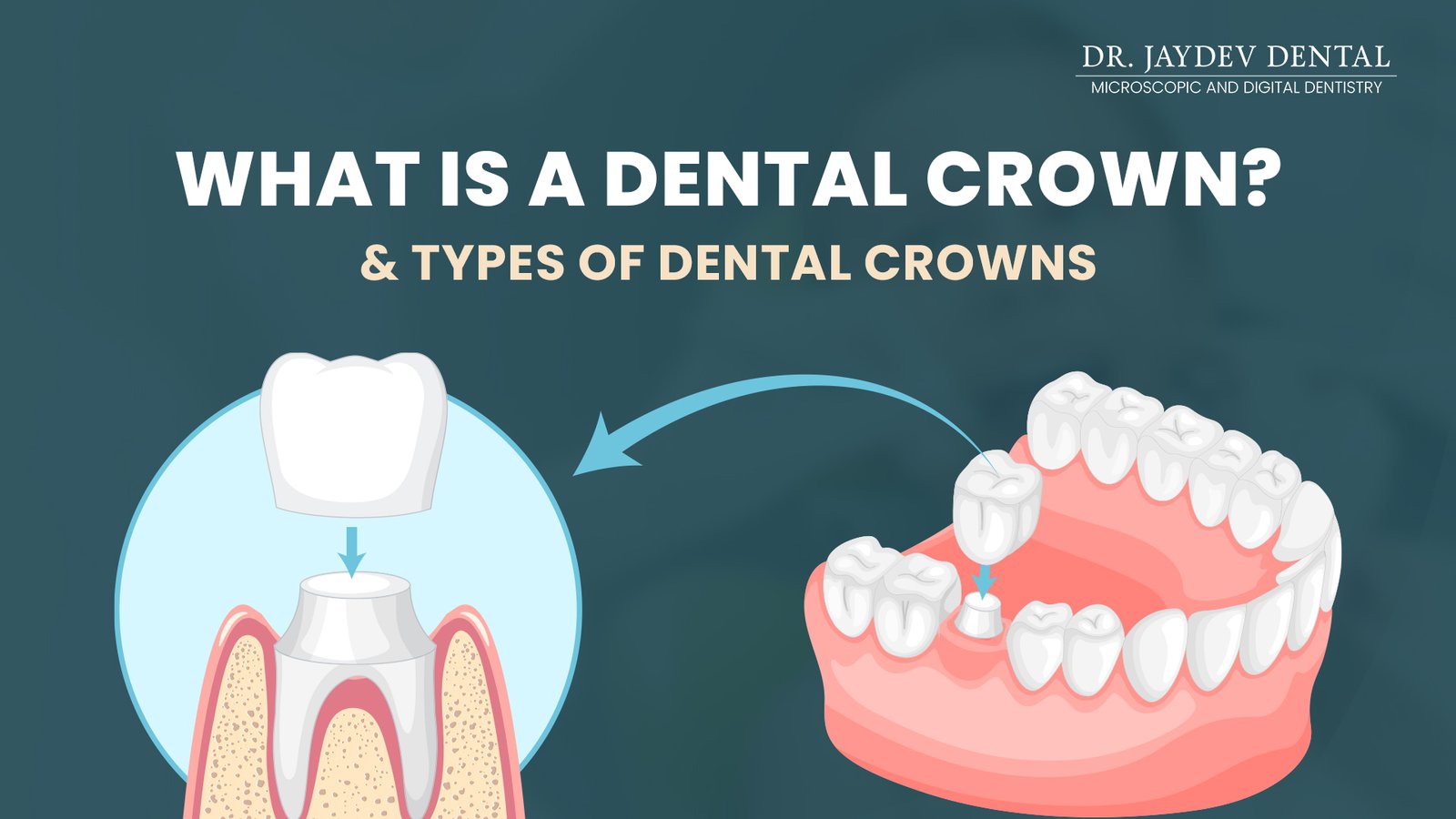What is Dental Crown - Types of Crowns
Not all branches on trees are stronger as they look!!
The same comes to your teeth. The teeth may look stronger and healthier until you put some extra pressure which is what you usually do to your teeth every normal day. But when the teeth are weakened or damaged or starting to decay, even your mild pressures create a strong impact on pain. This is because the enamel covering your tooth is wiped off. Enamel is the hardest substance that helps in withstanding the thermal, chemical, and mechanical forces your teeth undergo. These don’t mean some electro-magnetic waves supplied into your mouth. They are just the mild or severe cold and hotness from the food or fluids we take. Don’t panic they are not invincible.
In this blog, we are going to elaborate more on the dental crowns, their types, and the right time to opt for them. Read the entire blog and you will find it useful!
Table of Contents
- What is a Dental Crown?
- When does one need a Dental crown?
- Why tooth need dental crowns?
- Types of Dental Crowns
- Summary
- FAQs
What is a Dental Crown?
Dental crowns are the rescue for damaged or broken teeth. To generalize, a dental crown is a type of cap placed above the teeth that are damaged or cracked. The common factors that contribute to the need for dental crowns are;
- Larger fillings are longer than tooth structures.
- Root canal treated tooth.
- Combination of root canal treatment and larger fillings.
- Cosmetic reasons or for dental aesthetics.
So, a dental crown is mainly the restoration solution or an aesthetic solution preferred by the dentist. Dental crowns are the best choice for improving tooth strength and appearance.
When does one need a dental crown?
In our previous blogs, we have already specified that maintaining oral health is of utmost importance. To achieve good oral health, one needs to visit their dentist at least twice a year for a general check-up.
You need not be the king to get a crown!
To get a dental crown there is no specific age limits or age constraint. Anyone with dental decays, damages or dental illness can consult their dentist for a complete diagnosis and required treatment plan. When the teeth are broken or cracked, the dentist may prescribe crowns based on the severity.
Why tooth need dental crowns?
From the definitions above, it is clear that dental crowns are to restore the strength of teeth and maintain aesthetics. So, it is required that you should know when the dental crown is to be preferred.
Here are some of the dental reasons that demand crowns are:
-
Larger cavities:
Cavities are the first sign of tooth decay or damage. These are the bacterial infections developed out of improper oral hygiene. These cavities are formed over enamel when the bacteria produce certain acids that dissolve enamel causing the tooth to be sensitive. In many cases, cavities are too large to cure by filling and hence crowns become the solution for it.
-
Large Fillings:
In general tooth, the filling is the right option to restore the tooth structure after decaying but it does not strengthen the tooth longer. So when the fillings are more and the tooth structure is insufficient to protect them, a dental crown is placed to cover up and prevent further damage.
-
Severe Acid Erosion:
Acidic habits lose significant amounts of enamel on teeth. Hence rebuilding the enamel and retain the tooth strength is necessary to prevent damage further. Dental crowns are placed over teeth to protect them from such acidic erosions.
-
Heavy Clenching/Grinding:
Enamel loss can also be due to the mechanical wear and tear that occurs from clenching and/or grinding while in sleep. This contributes to the shortening and flattening of the tooth as the enamel slowly wears away.
-
Cracked Teeth:
Cracking in teeth may be due to the enamel wearing off, large fillings, or any injury. Tooth cracks allow the temperature and bacteria to penetrate deep into teeth. This increases the sensitivity, and cavities and wears off the enamel.
-
Root Canal Treatment:
In the root canal treatment, the nerves and blood supply vessels were removed from the teeth. This makes teeth become brittle and breakable. Hence dental crowns are placed over the particular teeth to prevent further breakage.
A dental crown is much more helpful in retaining the teeth’s original strength and longevity.
- To protect decayed, damaged, or cracked teeth from further damage.
- To replace the tooth filling.
- To restore the broken or worn-out tooth.
- To cover & support the large filling tooth.
- To close spaces between teeth, or reshape or rotate teeth.
- To cover the dental implants.
- To strengthen the root canal-treated tooth.
- To protect from further breakdown.
Types of dental crowns
There are 4 types of dental crowns Ceramic, Porcelain fused to metal, gold alloys, and E- MAX: Lithium Disilicate Crowns.
-
Gold Alloys Crown:
As the name implies it is the alloy of gold, copper, and other metals that form a strong bond to the tooth. It is the strongest form that doesn’t fracture, wear or break and hence it is the most durable crown of all. Gold alloy crowns are the dentist's preferred choice for patients who need back restorations. However, these are less preferred as they are not aesthetically appealing.
Advantages –
- Highly resistant and strong.
- Less proportion of natural teeth to be removed.
- Ideal for back teeth, especially second molars.
Disadvantages –
- Poor Aesthetics due to color.
- Chances of side effects like allergic reactions or swelling.
-
Porcelain Fused-to-Metal Crowns (PFM)
These are the traditional and widely used crowns for their metal structure and aesthetics. This crown is having a silver-colored metal covered by tooth-colored porcelain. To place this crown, the original tooth is to be thin, and hence more tooth structure is removed to place.
Advantages –
- Strong and extremely durable.
- Good aesthetics.
- Comparatively low at costs.
Disadvantages –
- The metal at the gum line may cause a grey line disturbing the aesthetic look.
- For people who clench their teeth, the crown may wear down against the opposite tooth.
-
Ceramic Crowns:
These are again of two types:
Feldspathic Porcelain Crowns – Traditional crowns with a luminous material offer a very natural look and translucent appearance.
Zirconia Crowns – These are the hardest and strongest of all available types. Zirconia is a very transparent material and hence these crowns retain the natural tooth color making the good aesthetics.
Advantages –
- Extremely durable and indestructible.
- The process is less occupied.
- Less likely to wear down.
- No infections or allergic reactions.
Disadvantages –
- Their strength of them may wear off the opposite teeth.
- As the metal is stronger, it is difficult to adjust if not fit properly.
-
E- MAX: Lithium Disilicate Crowns
This is the newest type of dental crown commonly known as E-Max. These crowns carry exceptional strength and translucency from lithium, disilicate which is glass-ceramic.
Advantages –
- Good at aesthetics
- Strong and Durable
- Good choice for front and back tooth
Disadvantages –
- Slightly Expensive.
- There are cases where E-max didn’t work well in cases of posterior teeth.
Summary
So, a dental crown is nothing but a protective cap placed over the natural tooth to prevent further decay or damage. So, if you got your crown placed, it is always suggestible to take post-operative care and maintain correct oral hygiene. All these help you in protecting the crown and thus protecting your teeth.
For more discussion or clarity on dental crowns book your appointment with Dr. Jaydev MDS, MFD, RCSI (UK); MFDS RCPS (UK).
Get Every Single Answer About The Treatment
It’s just simple, follow all the post-operative instructions from your dentist, maintain a healthy oral hygiene routine, and get regular check-ups even if your crown is alright.
In general, there will be no pain. But in some visits or during some procedures, you may feel slightly uncomfortable. This is all fine as it gets cured by itself. However, the tooth may have some numbness or sensitivity for the initial few days.
Porcelain, Porcelain fused to metal; gold, zirconium, etc. are the commonly used materials in dental crowns.
After placing the crown, there will be a slight pain. Apart from it, there will be slight growth in the gums sometimes causing pain. In some people, there will be a compression kind of sensation on the crown in the beginning days of installation.
Healing time is crucial to allow the crown to adhere to the teeth. During this period, prefer to take soft foods that put less pressure on my teeth. Use the medications under the dentists advice to relieve discomfort, pain, or swelling.


